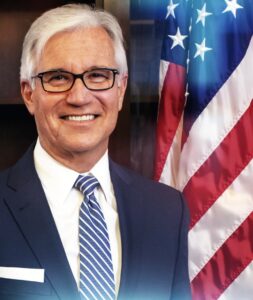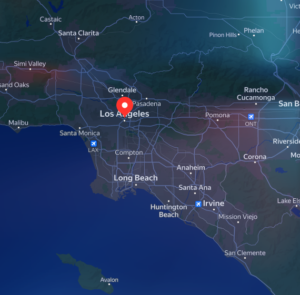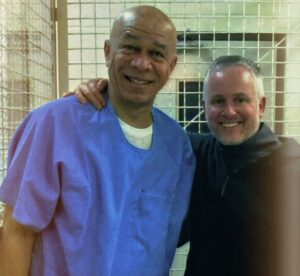Podcast: Play in new window | Download
The California Criminal Legal System Reconsideration
In recent years, District Attorneys around the country in Los Angeles, Philadelphia, San Francisco, and elsewhere have broken the law and order mold as they look for better ways to address public safety, crime, prosecution, and sentencing in America, including a wholesale reconsideration of the death penalty.
To examine the criminal legal system in the United States, we’ve invited one of the leading progressive prosecutors in America, George Gascon, the District Attorney of Los Angeles County, to join us.
Guest – Attorney George Gascon began his career in law enforcement at the Los Angeles Police Department where he worked his way up the ranks from patrol officer to Assistant Chief of Police, overseeing operations for the more than 9,000 LAPD officers Then, in 2006, he was tapped to be Chief of Police in Mesa, Arizona, where he stood up to the hateful and anti-immigrant policies of then-Maricopa County Sheriff Joe Arpaio. In 2009, then-Mayor Gavin Newsom appointed Gascón to be San Francisco’s Chief of Police. Two years later, Newsom again turned to Gascón to fill a vacancy created when then-District Attorney Kamala Harris was elected California Attorney General. Gascón was re-elected San Francisco District Attorney twice.
He was the first Latino to hold that office, and the nation’s first Police Chief to become District Attorney. On December 7, 2020, he took office as the DA of LA County. He is also a former board member of the Council of State Governments Justice Center, a graduate of the FBI’s National Executive Institute and a former member of the Harvard University Kennedy School of Government’s Executive Session on Policing and Public Safety.
—-
Maintaining Innocence Under Threat Of Execution: Bill Clark
We may be witnessing the dying days of the death penalty in the United States. 23 states have ended the use of capital punishment, while it remains on the books in 27 states, yet the number of executions are in decline. The U.S. public sector and political leaders are beginning to understand what abolitionists have always known: The death penalty is a relic of our racist past yet discrimination on the basis of race continues to plague the system. 55.8 percent of those executed are white, but 33.9 percent are Black and 8.4 percent are Latino/a, which is gruesomely out of proportion to the national population. Currently, 42 percent of death row inmates are white but a shameful 41 percent are Black.
Today, on Law and Disorder we are focusing on the state of California, where there are 650 inmates on death row, the largest number in the Western Hemisphere. 13 men have been executed since 1978. The last execution was in 2006. Due to a combination of court rulings and a moratorium imposed by Gov Gavin Newsom in 2019, there have been no executions in California in the last 18 years. Five inmates have been officially found innocent, all of whom were people of color. They join the 200 exonorees nationwide. Despite the moratorium in California, 17 people have still been sentenced to death in California — 80% of whom are Black or Latino.
The California Supreme Court is currently deciding whether to take up a historic petition filed in April by a coalition of civil rights and justice organizations arguing that racial discrimination in the administration of the death penalty in California violates the equal protection guarantee of the state constitution. The petition to the state Supreme Court cites more than a dozen studies showing race discrimination. One looked at more than 55,000 homicide cases in California between 1979 and 2018 and found that Black individuals were more than twice as likely to receive a death sentence as white individuals, while Hispanic individuals were 1.5 times more likely to receive a death sentence. California Attorney General Rob Bonta agreed in his response to the petition that the evidence of racial discrimination in capital punishment is “profoundly disturbing.”
So those are some of the facts which describe the capital punishment system in California and the Nation. But today on Law and Disorder we want to go beyond those raw statistics and take a look at the human cost of the death penalty by talking to someone who has been living under the threat of execution for 33 years. Bill Clark’s Film Project
Guest – Bill Clark joins us by phone from prison in Vacaville, California, where he has been housed since March of this year after his transfer from San Quentin, where he was incarcerated for 26 years. I have known Bill for 24 years. Despite his situation, he is a hopeful, resilient and creative person. He was convicted of two murders in the early 1990s and has steadfastly maintained his innocence as he continues to challenge his convictions and death sentences.
————————————




